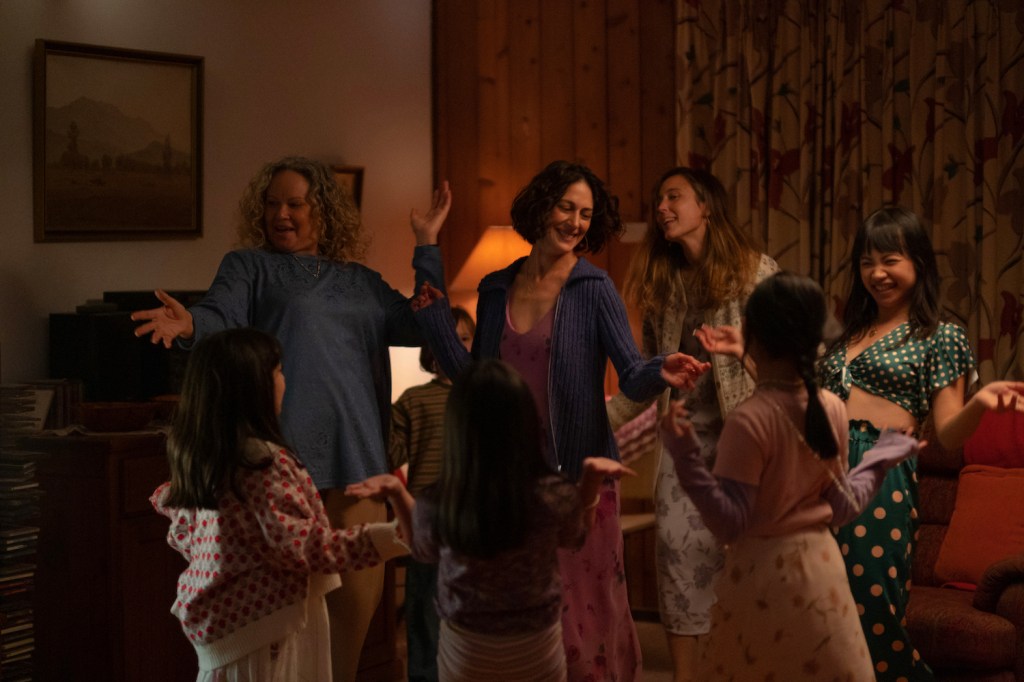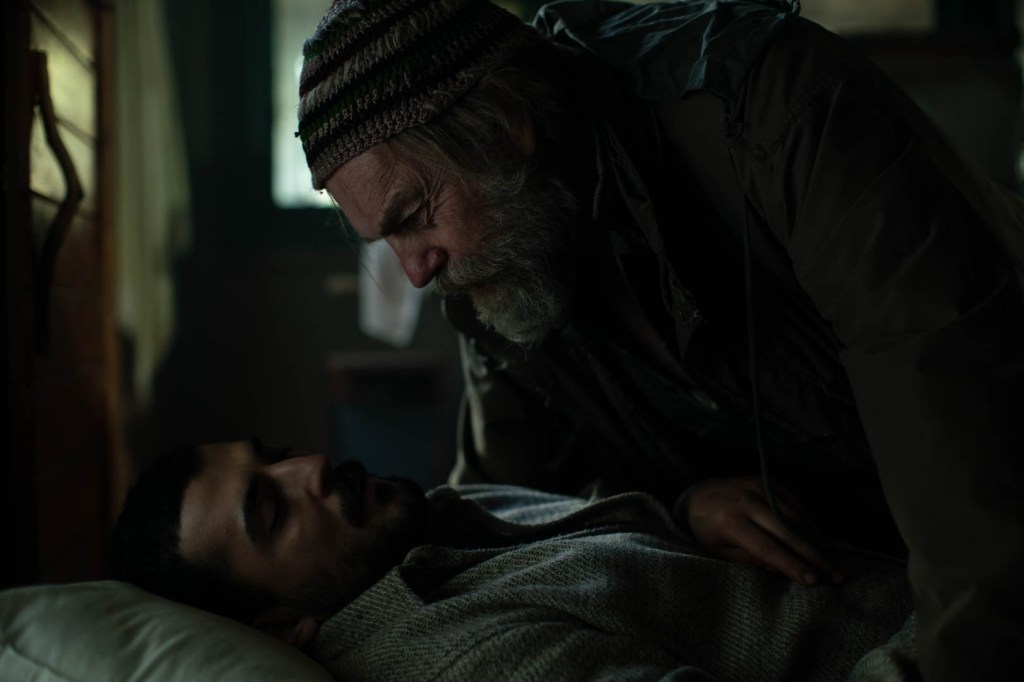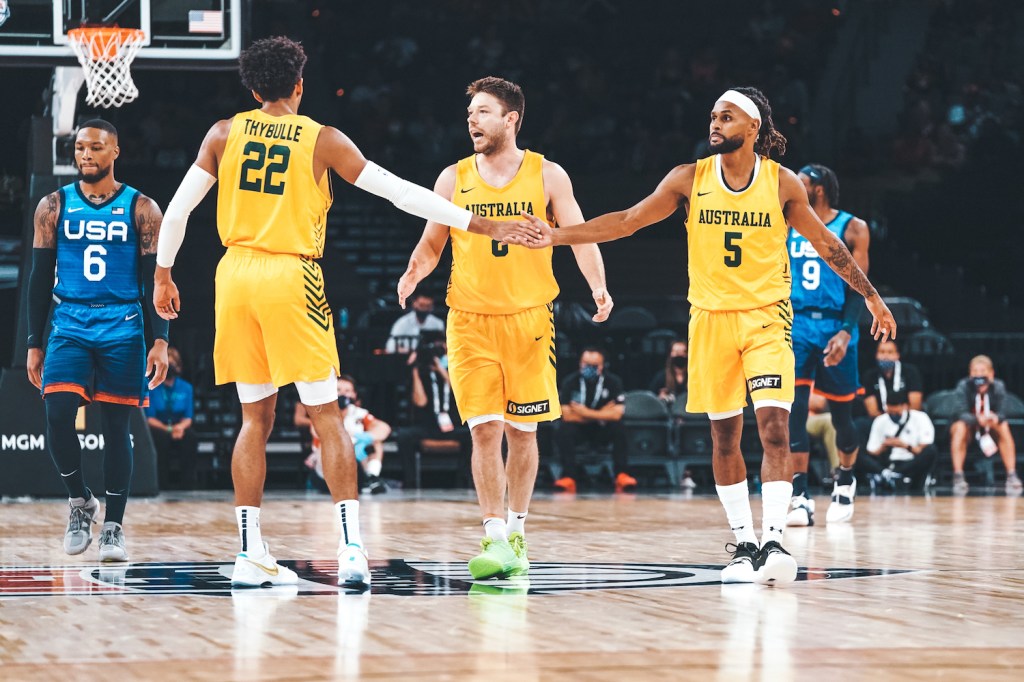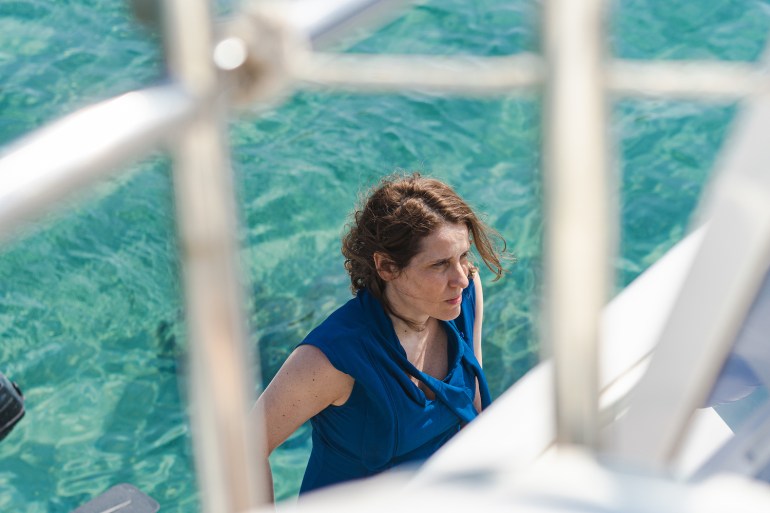The full line-up for this year’s Melbourne International Film Festival (MIFF) was unveiled this evening, with a significant number of Australian additions, such as the world premieres of Jason Raftopoulos’ sophomore feature Voices in Deep and Matthew Adekponya’s behind-the-scenes look at how the Boomers took bronze in Tokyo, Rose Gold.
Other newly-announced local fare include John Curran’s Mercy Road; Matt Vesely’s Monolith; Gabriel Carrubba’s Sunflower; Jack Clark and Jim Weir’s Birdeater, which recently won the audience award in Sydney; Soda Jerk’s Hello Dankness; Ricard Cussó and Tania Vincent’s animation Scarygirl; and Ben Joseph Andrews’ XR work, Turbulence: Jamais Vu.
Bringing the scares will be the Cairnes brothers’ Late Night With the Devil, which debuted at SXSW; Josiah Allen and Indianna Bell’s You’ll Never Find Me, fresh from a premiere in Tribeca; and Nick Kozakis’ Godless: The Eastfield Exorcism.
Local documentaries to screen include Adrian Russell Wills and Gillian Moody’s Kindred; ABC Radio National critic Jason di Rosso’s personal essay Hidden Spring; Douglas Watkins, Jill Robinson, E.J. Garret and S.F. Tusa’s four-part Rebel With A Cause; Ukraine Guernica – Artist War from George Gittoes; Tyson Mowarin’s Keeping Hope, and Isabel Darling’s The Carnival.
A live performance will accompany the world premiere of Rosie Jones’ Abebe-Butterfly Song, about the friendship between Papuan musician Sir George Telek and Not Drowning, Waving’s David Bridie. It forms part of the The Music on Film strand, which will also feature Ian White’s Mutiny in Heaven: The Birthday Party and the previously announced EGO: The Michael Gudinski Story, which will have a gala screening – expect some big names in Australian music to be in attendance.
Festival director Al Cossar calls MIFF’s 71st iteration is a “delivery of scale”, with 267 titles from 70 countries around the world, including almost 50 films from Cannes.
One of the most “vital, dynamic” elements of MIFF for Cossar is the $140,000 Bright Horizons competition, now in its second year. In his view, the competition leads the team’s curatorial approach, in that it aims to amplify new cinema and has a focus on works from first and second-time directors. Each of the 12 films makes its Australian premiere.
“I think about MIFF as this very overwhelming, ‘at scale’ program that I think even for cinephiles, can be – not intimidating, but a lot to work your way through. We’re constantly looking for ways to design a program that makes it easier, but still maintains the integrity and the depth of cinephilia that we love and is fitting for MIFF.
“With something like Bright Horizons, it’s an open door to discovery. It’s saying ‘This is a place where there is an exciting wealth of new talent and new voices, and filmmakers that will, in our opinion, continue to some very significant places’.”

Australian films up for the prize include Noora Niasari’s Shayda, which will open the festival, and The Rooster, from actor-turned-director Mark Leonard Winter. Each is financed via the MIFF Premiere Fund and were previously announced for the festival earlier this year.
Cossar describes Shayda, which draws from Niasari’s life, as a film of authenticity and texture. It stars Zar Amir-Ebrahimi (Holy Spider) as a young Iranian mother who finds refuge with her six-year-old daughter Mona in an Australian women’s shelter. Niasari, an alum of MIFF’s Accelerator program, is a talent the team have had their eye on for some time. Shayda won the audience award in the Sundance World Cinema Dramatic Competition in January.
“I think it’s a really commanding debut feature,” Cossar says.
“It’s extraordinary in how it does what it does; the strength of performance and the confidence of direction… I thought the cultural contours of the expat Iranian community within that story was something that perhaps we haven’t seen on screen in an Australian film quite like this before. It gives something to the breadth of experience you have in Australian cinema.”

Cossar feels Winter’s background as an actor is evident in his debut The Rooster, which he describes as living on the strength of the “extraordinary” performances of leads Hugo Weaving and Phoenix Raei, who play a hermit and a cop, respectively. In the two-hander’s sights are fraught masculinity and mental health.
“Tonally it’s really fascinating; it swings between black comedy and affecting and sensitively-realised drama,” he says.
“It was fascinating to me because it’s a film that takes risks and, I think, Iands them successfully.”
The competition also includes a hefty number of titles from Cannes, including Caméra d’Or winner Inside the Yellow Cocoon Shell, from director Pham Thien An; Ama Gloria, directed by Marie Amachoukeli, which opened Cannes Critic Week (and has what Cossar thinks is one of the best child performances he’s ever seen on screen); Banel & Adama, from Ramata-Toulaye Sy, the only debut selected for this year’s Cannes competition; Sean Price Williams’ The Sweet East, starring Australian Jacob Elordi, which screened in Directors’ Fortnight, and Un Certain Regard winner, Molly Manning Walker’s How to Have Sex.
Also up for the main prize is Earth Mama, from Olympian-turned-filmmaker Savanah Leaf, which premiered at Sundance; Sofia Alaoui’s Animalia, also from Sundance; Lila Avilés’ Tótem, and Giacomo Abbruzzese’s Disco Boy, both of which bowed at Berlin.
The co-directors of last year’s winner, Neptune Frost, Saul Williams and Anisia Uzeyman, will preside over a jury that includes documentarian Alexandre O. Philippe, former Camera d’Or winner Anthony Chen, Australian performer Zoe Terakes and Indonesian director Kamila Andini.
Other prizes to be given to local filmmakers include the $70,000 Blackmagic Design Australian Innovation Award, which acknowledges a key creative or head of department from a project screening anywhere in the program, and the new First Nations Film Creative Award, which includes a $20,000 cash prize and $25,000 worth of financial services via sponsor Kearney Group.

Also on the local front, MIFF ambassador Robert Connolly will present a retrospective screening of his 2001 debut feature The Bank, which has been digitally restored into 4K. Other restoration screenings include Sue Brooks’ Japanese Story; Roger Scholes documentary The Coolbaroo Club, and With Love to the Person Next to Me, from Brian McKenzie, which won the Locarno Prize of the Ecumenical Jury in 1987.
Elsewhere in the program is Australian writer/director Andrew Durham’s Fairyland, produced by Sofia Coppola, and starring Scoot McNairy, Emilia Jones, Geena Davis, Adam Lambert, Maria Bakalova and Australian actor Cody Fern.
As previously announced, MIFF will also screen Premiere Fund titles Ili Baré’s Australia’s Open, Memory Film: A Filmmaker’s Diary from Jeni Thornley and Thomas Charles Hyland’s This is Going to be Big.
International headliners this year include Palme d’Or winner, Justine Triet’s Anatomy of a Fall; Celine Song’s Past Lives; Alice Rohrwacher’s La Chimera; Wim Wender’s Perfect Days; Marco Bellocchio’s Kidnapped and Nuri Bilge Ceylan’s About Dry Grasses.
There’s also Todd Hayne’s May December; Catherine Breillat’s Last Summer; Kelly Reichardt’s Showing Up, Hirokazu Kore-eda’s Monster, and Joanna Hogg’s The Eternal Daughter. Mark Duplass and Mel Eslyn will attend the festival for a screening of Biosphere.
Paul Schrader’s Joel Edgerton and Sigourney Weaver-starrer Master Gardener will also screen, while closing out the festival is Sundance and SXSW title Theater Camp, from Nick Liebermann and Molly Gordon.
Special programs this year include retrospective Critical Condition, which celebrates a decade of MIFF’s Critics Campus initiative, which nurtures emerging screen critics and puts emphasis on screen criticism as a vital part of screen culture.
The strand is guest curated by both Australian and international critics, including Variety’s Guy Lodge and The Guardian Australia’s Michael Sun, and features cinema that “can’t be separated from the conversation around it”.
“I think having a retrospective that is geared not only around films, but around the conversation to films, the way we respond to films, is a really interesting idea in 2023, when we live in such an immediate cultural consumption context,” Cossar says.
Director in Focus: Argento Restored will feature 12 new 4K restorations by the master of Italian horror, while there is also a similar spotlight for the ‘mother of African cinema,’ Safi Faye, who died earlier this year.
In a celebration of the short film, this year MIFF also has programmed Auteurs Abridged: New Shorts by Masters, including Pedro Almodóvar’s Strange Way of Life, starring Ethan Hawke and Pedro Pascal, and the late Jean Luc Godard’s Trailer of the Film That Will Never Exist: ‘Phony Wars’. Alongside them is Australian short Marungka Tjalatjunu (Dipped in Black), which won Berlinale’s Silver Bear Jury Prize (Short Film) and Teddy Award for Best Short Film, as well as more recently, Sydney’s $20,000 Documentary Australia Award.
The MIFF Talks program will also see Celine Song appear in conversation to discuss her debut Past Lives, which is already gathering significant Oscar buzz. There will also be discussions themed around cinema in the regions and the Bright Horizons film competition.
MIFF 2023 runs in-cinema from August 3-20, with regional screenings in Bendigo, Bright, Castlemaine, Echuca, Geelong, Rosebud and Warrnambool August 11-13 and 18-20. Selected titles will also screen online nationally via MIFF Play August 18-27. Pre-sales are open to MIFF Members July 11-13, with tickets available to the general public July 14.


